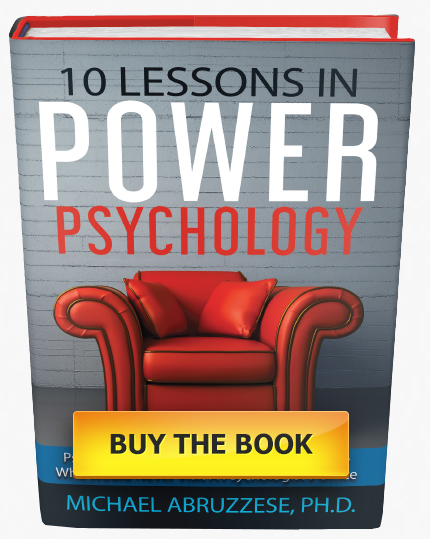71 Better Ways To Manage Stress
By Michael Abruzzese, Ph.D.
© Copyright 2021 Vista Health Services, Inc.
Posted 3/12/21
“A positive mood is a precursor to creativity.” . – Teresa Amabile, Ph.D.
Stress cannot be avoided. Stress cannot be stopped – nobody can avoid stress while living and partaking in the modern world, although it is an attractive fallacy that if people learn how to relax, or meditate enough, or take enough prescription medications or street drugs, that stress can be avoided. It can’t. There is always something that can happen to us that is unexpected and that cause stress, even if only temporarily.
Not all stress is bad –some stress, called eustress – is normal in everyday life. But it still needs to be managed. Eustress is viewed as a form of everyday stress that actually has the positive effect of motivating people to engage in more adaptive behaviors; such as getting homework done, losing weight, trying to achieve peak potential and that sort of thing. The best way to manage stress is to confront it and resolve the challenge or problem that is causing the stress.
But what if you don’t know what’s causing it?
Usually, people don’t know what is causing stress. And that creates more stress, but we tend to call that type of stress ‘anxiety.’ Anxiety is not normal. Worry is normal and so is stress, but anxiety is more of a clinical condition that has a different definition than does stress or worry.
Briefly, worry, nervousness and stress are defined as an un-easiness about some identifiable task or event that must be completed. Like, doing your taxes, for example.
Anxiety, on the other hand, has many of the same characteristics of nervousness or worry or stress, except….except…EXCEPT –
Except that you just can’t identify any particular identifiable task or event that is causing you the unpleasantness. Anxiety can be a trigger for psychological treatment, whereas worry is not. People can learn how to manage everyday stress and worry in a number of ways. Managing stress, however, usually needs the help of someone with expertise.
Spoiler Alert: I am NOT a strong believer in anti-anxiety medication, because I have seen too much damage that it has caused to individuals and families over the years. Also, medication doesn’t teach the life skills necessary and important for individuals to understand and manage their own anxiety.
It’s true that I am not a strong believer in anti-anxiety medication, because I have seen too much damage that it has caused individuals and families over the years. Also, medication doesn’t teach the life skills necessary and important for individuals to understand and manage their own anxiety. Still, physicians and psychiatrists seem to have no trouble prescribing them; so if medication is your preferred method of covering up your own anxiety, there are plenty of prescribers out there who may be happy to prescribe for you. And other bloggers who may write about it.
This post is for folks who prefer not to do meds. So here are some ideas – about 100 or so – that people have found helpful over the years in managing their stress. See if some or many of them might be helpful to you. If not, consider seeking help from a licensed professional. Don’t delay.
CHECKLIST FOR STRESS MANAGEMENT
Watch a funny TV show, movie or video.
Read a story in an actual book, not on your phone or tablet, curled up in bed.
Do a brand new thing. It can be a small thing.
Look at the flower displays the next time you go food-shopping.
Buy yourself a flower, or a bunch of flowers.
Get up 15-30 minutes earlier to give yourself time to get ready for the day.
Prepare for the morning the night before.
Avoid tight fitting clothes that restrict your blood flow.
Avoid relying on chemical aids to sleep, relax or be happy.
Set reminders ahead of time for appointments.
Write things down; don’t rely solely on your memory.
Practice prevention; don’t just keep making repairs.
Make sets of duplicate keys and have them handy.
Don’t automatically say “YES” to everything.
Start thinking about goals; set priorities in your life.
Avoid negative people.
Use time efficiently when you must; spend time leisurely when you can.
Simplify some meals (or some meal times, if you are cooking for others).
Always make copies of important papers; put them where you can find them easily.
Anticipate what you might need in the future if there are storms, power outages or…pandemics.
Repair, donate or dispose of anything that doesn’t work properly.
Ask for help with the tasks you dislike or have trouble doing; don’t punish yourself.
Break large jobs into smaller “chunks” and do each one as a separate task.
Try and view ‘problems’ as ‘challenges.’ Or make solving those problems fun somehow, if you can.
Make your life less cluttered, within reason and without guilt.
Smile more.
Be prepared for bad weather.
Pet a friendly dog or cat. Or ferret. Or stuffed animal – but something friendly and fuzzy.
Don’t think that you need to know all the answers. You don’t; there’s nothing wrong with that.
Look for the possible good thing that may emerge from lousy events.
Schedule “play time” every day for yourself, your kids, your pets.
Take a relaxing bubble bath or a long, relaxing shower.
Practice being aware of your surroundings: Notice details in architecture, nature, offices.
Stop saying negative things about yourself.
Stop listening to “talk radio” and TV news shows.
Play music that you like.
Dance. Or just move a little, if you can’t really dance.
Say “hello” to a stranger
Ask a friend for a hug – a friend that is likely to agree.
Look up at the clouds during the day. Watch for at least 10 seconds, then work up to 30 seconds.
Look up at the stars at night. Watch for at least 10 seconds, then work up to 30 seconds.
Practice breathing slowly.
Learn to whistle a tune.
Read a poem.
Listen to a symphony.
Watch a ballet.
Look at paintings and sculpture in a museum or ancient church (now available online).
Choose to be cheerful.
Act safely, for yourself and others.
Pay more attention to your appearance.
Strive for quality, not perfection.
Hum a tune when by yourself.
Maintain your weight
Feed the birds.
Stand up and stretch; gently at first, then with more energy.
Start to doodle when watching TV or videos.
Learn a new joke.
Pay attention to any aches or pains that your body is developing.
Listen more carefully to what loved ones are saying.
Know your limitations.
Try to stretch your limits a little everyday.
Don’t let others push you beyond your limits.
Throw a paper airplane.
Do some kind of light exercise every day.
Learn the words to a new song.
Clean out a closet.
Put air freshener in your car.
Watch a movie and have popcorn.
Eat by candlelight.
Practice a monster smile
Remember that you always have options
Have a support network of people, places, and things
Stop trying to “control” other people and events. You cannot control everything.
Get enough sleep.
Give compliments to others more freely.
Laugh.
———————————————————
Michael Abruzzese, Ph.D. is a clinical psychologist on Cape Cod and a former Clinical Instructor at Harvard Medical School. He is the author of Ten Lessons in Power Psychology; Psychology Tips and Techniques For People Who Would Never Visit a Psychologist’s Office. https://www.amazon.com/Lessons-Power-Psychology-Techniques-Pscychologists/dp/0991011708



